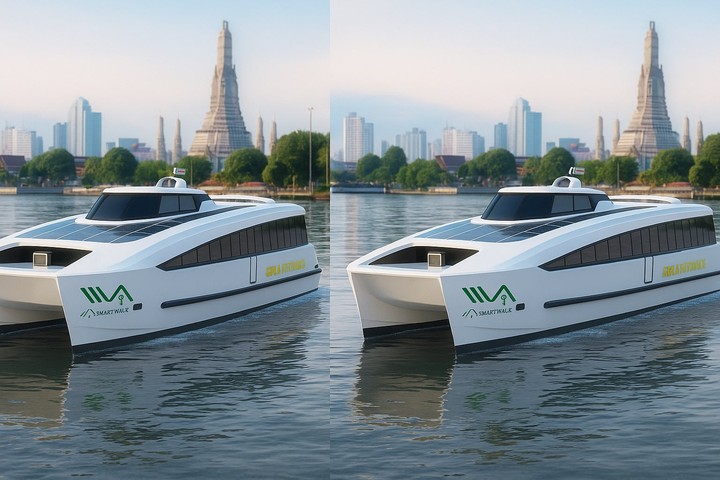The Lagos State Government, under the leadership of Governor Babajide Sanwo-Olu, is set to officially launch the Omi Eko Project on October 17, 2025 — a bold step toward transforming water transportation in the state. The initiative, managed by the Lagos State Waterways Authority (LASWA), is backed by an impressive €410 million funding package from the Global Gateway Initiative, supported by the European Union (EU), the French Development Agency (AFD), and the European Investment Bank (EIB).
The Omi Eko Project is designed to modernize Lagos’s waterways with a new fleet of 78 high-capacity electric ferries capable of carrying between 50 and 200 passengers each. Alongside the ferries, the project includes the construction and upgrade of modern ferry terminals and floating jetties, ensuring accessibility and comfort for passengers across major coastal and inland routes.
In addition to improving infrastructure, the project involves dredging and stabilizing over 140 kilometers of water routes across 15 key corridors to make travel smoother and safer. The state will also introduce digital ticketing systems and smart terminals to enhance efficiency and reduce waiting times for commuters, aligning with the governor’s Greater Lagos Rising agenda.
The Omi Eko Project is more than just a transportation upgrade — it represents Lagos’s commitment to sustainability, cleaner energy, and innovative mobility. By adopting electric ferries, the state is reducing its carbon footprint while promoting an environmentally friendly alternative to road transport. LASWA will oversee safety regulations, capacity building, and operational standards throughout the project’s implementation.
Governor Sanwo-Olu’s administration is also exploring the establishment of a Lagos Railway Corporation to further integrate the state’s transport network. The Omi Eko Project will be executed in phases over the next six years, positioning Lagos as a leading model for smart, multimodal urban transport in Africa.







